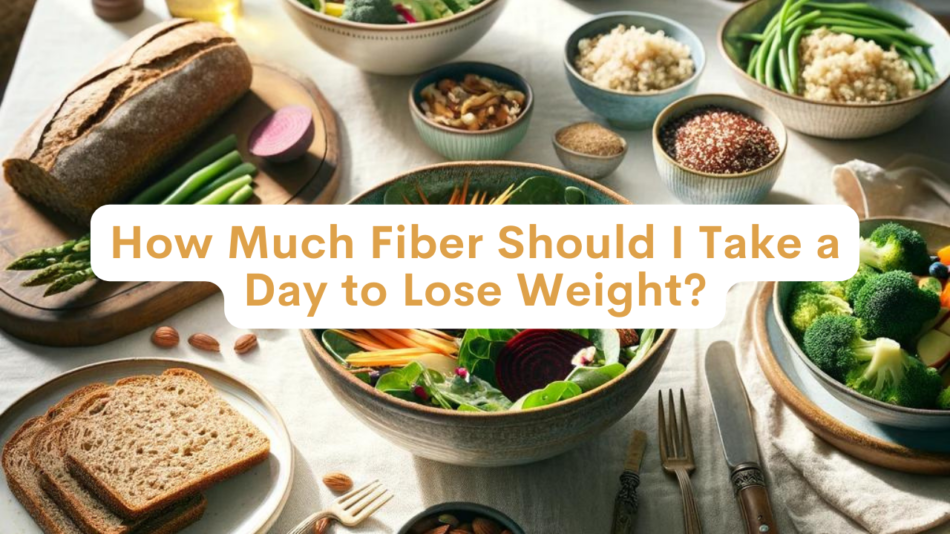
In the ongoing battle against the bulge, dietary fiber has emerged as a critical ally. With its proven benefits for digestion, heart health, and blood sugar regulation, fiber is also lauded for its ability to aid weight loss. But a question that often arises is: How much fiber should I take a day to lose weight? This article aims to shed light on the optimal daily fiber intake for weight loss, supported by scientific research and expert guidelines.
Understanding the Role of Fiber in Weight Loss
Fiber is a type of carbohydrate that the body cannot digest. It passes through the body undigested, helping regulate the body’s use of sugars, and keeping hunger and blood sugar in check. There are two types of fiber: soluble, which dissolves in water, and insoluble, which does not dissolve. Both types play a role in weight management, but soluble fiber is particularly important for weight loss as it forms a gel-like substance in the stomach, slowing digestion and promoting a feeling of fullness.
Recommended Daily Fiber Intake
The American Heart Association and other health organizations recommend a daily fiber intake of at least 25 to 30 grams from food, not supplements. However, the specific amount for weight loss can vary based on individual dietary needs and goals. Research suggests that consuming more than 30 grams of fiber per day can significantly contribute to weight loss, especially if it comes from natural food sources.
How Much Fiber Should I Take a Day to Lose Weight?
To effectively lose weight, aiming for a fiber intake in the range of 30 to 35 grams per day can be beneficial. This amount is considered safe and effective for most adults, helping to create a calorie deficit by reducing appetite and calorie intake. However, it’s essential to increase fiber intake gradually to prevent digestive discomfort and to drink plenty of water to aid in fiber absorption.
Sources of Dietary Fiber
Incorporating a variety of high-fiber foods into your diet is the best way to meet your fiber needs for weight loss. Here’s a table showcasing some fiber-rich foods and their fiber content:
| Food Item | Fiber (grams) per serving |
|---|---|
| Black beans, cooked | 15g per cup |
| Lentils, cooked | 15.6g per cup |
| Avocado | 10g per whole avocado |
| Raspberries | 8g per cup |
| Chia seeds | 10.6g per ounce |
| Oats | 4g per half-cup |
Incorporating Fiber Supplements for Weight Loss
While natural sources are preferable, fiber supplements can be a convenient option for those struggling to meet their fiber intake through diet alone. However, it’s crucial to choose supplements wisely, focusing on products that offer natural fiber sources without added sugars or artificial ingredients.
The Impact of Fiber on Digestive Health
How much fiber should I take a day to lose weight? Beyond weight loss, this question also ties into overall digestive health. Fiber aids in maintaining bowel health, reducing the risk of constipation, and promoting a healthy gut microbiome. This, in turn, can have indirect benefits for weight management by improving metabolic health.
FAQs on Fiber Intake and Weight Loss
Can I take too much fiber?
Yes, excessive fiber intake can lead to digestive issues such as bloating, gas, and abdominal pain. It’s important to increase fiber gradually and ensure adequate water intake.
Are fiber supplements as effective as natural sources?
While supplements can help meet fiber needs, natural sources are preferable due to the additional nutrients they provide, which are beneficial for overall health.
How quickly will I see weight loss results from increasing my fiber intake?
Results can vary, but many people begin to see improvements in appetite control and weight within a few weeks of increasing their fiber intake.
How Much Fiber Should I Take a Day to Lose Weight? A Balanced Approach
In conclusion, while fiber plays a crucial role in weight loss and overall health, it’s important to adopt a balanced approach. How much fiber should I take a day to lose weight? Striving for 30 to 35 grams per day from a mix of natural sources and possibly supplements, if necessary, is a solid strategy. Remember, gradual changes and hydration are key to adapting to increased fiber intake without discomfort.
Adopting a high-fiber diet for weight loss should be part of a broader lifestyle change, including regular physical activity and mindful eating. By focusing on the quality of your diet and incorporating a diverse range of fiber-rich foods, you can achieve your weight loss goals while enhancing your overall health.